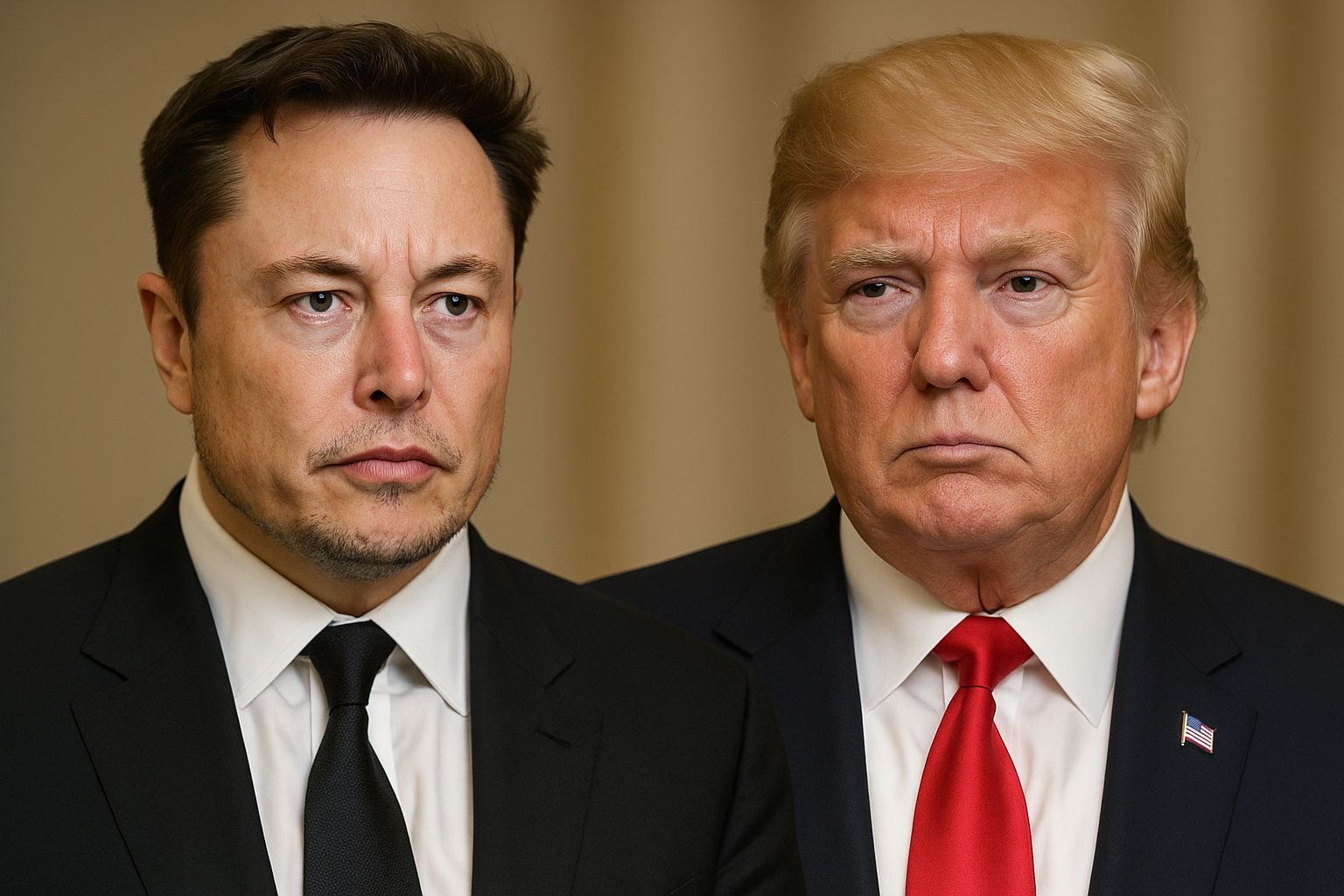 In the gilded age of billionaires and digital demagogues, few names command as much reverence and controversy as Elon Musk. A visionary industrialist, innovator, and self-styled global disruptor, Musk has long believed in the boundlessness of his intellect and influence. But in the shifting sands of American politics—especially under the thunderous weight of Donald J. Trump—he may have walked into a battlefield where capital and charisma are not always enough. The recent feud between Musk and Trump is not merely a clash of titans; it is a cautionary tale, an unfolding political drama that exposes the limits of wealth when confronted with raw populist power.
In the gilded age of billionaires and digital demagogues, few names command as much reverence and controversy as Elon Musk. A visionary industrialist, innovator, and self-styled global disruptor, Musk has long believed in the boundlessness of his intellect and influence. But in the shifting sands of American politics—especially under the thunderous weight of Donald J. Trump—he may have walked into a battlefield where capital and charisma are not always enough. The recent feud between Musk and Trump is not merely a clash of titans; it is a cautionary tale, an unfolding political drama that exposes the limits of wealth when confronted with raw populist power.
At the heart of this political conflagration lies a dangerous presumption—Musk’s apparent belief that his financial contributions and technological prestige grant him leverage over the very office that defines American sovereignty. Reports of Musk insinuating influence over Trump’s reelection strategy or daring to publicly challenge him on social platforms border not just on arrogance, but a fundamental misunderstanding of how American democracy and its populist undercurrents operate. To suggest, either directly or obliquely, that Trump can be “impeached” or silenced by a private citizen—even one of Musk’s stature—is to ignore the ironclad, often brutal, machinery of political survival in the United States.
What exactly emboldened Musk to speak of Trump in tones of dismissal or control? Was it the billionaire’s growing network of media platforms, his recent pivot toward becoming a public thought leader, or his substantial campaign donations to GOP interests? Whatever the source of this hubris, Musk has now stumbled into a space that devours outsiders—politics at the presidential level, where loyalty is transactional, memories are long, and power does not play fair. Unlike boardrooms and shareholders, the political class does not hesitate to remind disruptors that electoral legitimacy and public sentiment can eclipse net worth in a heartbeat.
Musk’s foray into this space represents not strength, but strategic naivety. Unlike Trump, who has mastered the theatrics of political martyrdom and possesses an uncanny ability to turn scandal into momentum, Musk is still operating from a corporate playbook. In politics, however, perception trumps intellect, and allegiance, not innovation, wins the day. Trump has survived impeachments, indictments, and insurrections—he is a seasoned gladiator of chaos. Musk, by contrast, is still learning that the American political establishment is not a board he can chair nor a market he can corner.
More troubling is Musk’s apparent disregard for the symbolic sanctity of the American presidency. Whether one loves or loathes Donald Trump, the office he seeks to reclaim is foundational to American identity. To challenge it publicly, and so personally, without political tact or institutional backing, invites not only backlash but systemic retaliation. Musk may believe in his invincibility, but history reminds us that even the most fortified titans can fall when they underestimate the might of the state. The suggestion that the U.S. government could not bankrupt him, humiliate him, or prosecute him without clear cause reveals a perilous underestimation of how power actually works.
Indeed, Elon Musk has much to lose—Tesla, SpaceX, X (formerly Twitter), Neuralink, and more. His global interests, his contracts with U.S. government agencies, his position on Wall Street—all stand vulnerable should he become too politically radioactive. Trump, by contrast, has already embraced the role of the political outlaw. He has nothing to lose and everything to gain from a public feud with a tech billionaire whom he can caricature as elitist, arrogant, and out of touch.
In this light, Musk’s bravado is less revolutionary and more reckless. He is playing with fire in a field soaked with ideological gasoline. American democracy, messy and imperfect as it may be, still holds deep reverence for the Office of the President, regardless of who occupies it. To denigrate that office for personal or ideological battles invites institutional resistance far stronger than any tweet or post.
For Musk, the wiser path would be to retreat from center stage, to wield influence quietly through think tanks, private advisory roles, or technological advancement—not through direct confrontation with a political juggernaut like Trump. If the goal is legacy, stability, and global respect, then he must recognize that not every battlefield needs a general. Some require architects, engineers, and visionaries who shape the world without needing to rule it.
As history continues to unfold, one thing is clear: America does not take kindly to those who underestimate its political rites and rituals. And posterity has little mercy for those who confuse influence with authority. Elon Musk may be a titan of the 21st century, but unless he recalibrates his approach, he risks being remembered not as the innovator who reshaped the future, but as the billionaire who mistook political theater for a stage he could control.
By: Jide Adesina
For: 1stafrika

